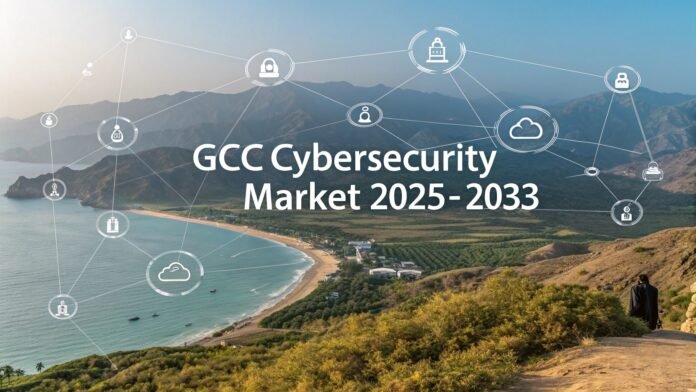GCC Cybersecurity Market Overview
The Gulf Cooperation Council (GCC) region is witnessing a significant transformation in its cybersecurity landscape, driven by increasing digitalization and the rise of sophisticated cyber threats. According to IMARC Group’s latest research, the GCC cybersecurity market is projected to grow from USD 5.7 billion in 2024 to USD 9.0 billion by 2033, reflecting a compound annual growth rate (CAGR) of 5.1% from 2025 to 2033. This growth is fueled by a combination of government initiatives, technological advancements, and the urgent need for robust cybersecurity measures across various sectors.
The Role of AI in Shaping Cybersecurity
Artificial Intelligence (AI) is revolutionizing the cybersecurity landscape in the GCC. Here are some key ways AI is enhancing security measures:
Advanced Threat Detection
AI-powered cybersecurity solutions are capable of analyzing vast datasets to identify patterns and anomalies. This enables real-time threat detection with unprecedented accuracy and speed, crucial for safeguarding the region’s burgeoning digital economy.
Automated Incident Response
Machine learning algorithms are streamlining incident response processes, significantly reducing response times from hours to mere minutes. Notably, Saudi Arabia’s NEOM project is integrating AI-driven security operations centers to proactively manage threats.
Predictive Security Analytics
AI systems are not just reactive; they can predict potential security breaches by analyzing historical attack patterns and network behaviors. This proactive approach allows organizations to implement preventive measures, staying ahead of emerging cyber threats.
Enhanced Identity Management
AI-enhanced identity and access management solutions utilize behavioral biometrics and anomaly detection to strengthen authentication processes. This is particularly important in the GCC, where strict data protection regulations are in place.
Intelligent Security Orchestration
AI is also orchestrating multiple security tools and platforms, creating unified defense systems that can adapt to evolving threats. The UAE’s smart city initiatives are a prime example of integrated AI cybersecurity frameworks across critical infrastructure.
Market Trends and Drivers
The GCC cybersecurity market is experiencing robust growth due to several key factors:
Escalating Cyber Threats
The increasing frequency and complexity of cyberattacks, including ransomware, phishing, and data breaches, are compelling organizations to invest heavily in advanced cybersecurity tools and services.
Government Initiatives
Government programs like Saudi Arabia’s Vision 2030 and the UAE’s Cybersecurity Strategy are establishing stringent data protection measures and compliance standards. These initiatives mandate organizations to implement robust cybersecurity frameworks, further driving market growth.
Digital Transformation
The rapid adoption of cloud computing, IoT devices, and mobile technologies is expanding the attack surface, creating a pressing demand for adaptive and proactive cybersecurity solutions. Organizations are now required to detect and respond to emerging threats in real-time.
Remote Work Culture
The expanding remote work culture across GCC countries presents new cybersecurity challenges. Employees accessing company networks from various locations increase the potential for security breaches. This shift is driving demand for zero-trust security models and comprehensive endpoint protection systems.
Managed Security Services
The growing adoption of managed security services is transforming the cybersecurity landscape, particularly among small and medium-sized enterprises (SMEs). Organizations are increasingly outsourcing their security operations to manage the complexity of modern security infrastructure and ensure 24/7 monitoring and response capabilities.
Industry Segmentation
The GCC cybersecurity market can be segmented into several categories:
Component Insights
-
Solutions:
- Identity and Access Management (IAM)
- Infrastructure Security
- Governance, Risk, and Compliance
- Unified Vulnerability Management
- Data Security and Privacy
- Others
- Services:
- Professional Services
- Managed Services
Deployment Type Insights
- User Type Insights:
- Large Enterprises
- Small and Medium Enterprises
Industry Vertical Insights
- IT and Telecom
- Retail
- BFSI (Banking, Financial Services, and Insurance)
- Healthcare
- Defense/Government
- Manufacturing
- Energy
- Others
Breakup by Country
- Saudi Arabia
- UAE
- Qatar
- Bahrain
- Kuwait
- Oman
Recent Developments
The GCC cybersecurity market is also witnessing significant developments:
-
January 2025: Saudi Arabia’s National Cybersecurity Authority launched a comprehensive cyber resilience program for critical infrastructure, mandating advanced threat detection systems across various sectors.
-
February 2025: The UAE’s Cyber Security Council announced partnerships with leading global cybersecurity vendors to establish regional security operations centers, enhancing incident response capabilities.
- March 2025: Qatar’s Ministry of Communications and Information Technology introduced new cybersecurity regulations for fintech companies, driving increased adoption of managed security services.
Conclusion
The GCC cybersecurity market is poised for substantial growth, driven by escalating cyber threats, government initiatives, and the rapid digital transformation of the region. As organizations increasingly recognize the importance of robust cybersecurity measures, the integration of AI and managed security services will play a pivotal role in shaping the future of cybersecurity in the GCC. With a projected market size of USD 9.0 billion by 2033, the region is set to become a leader in cybersecurity innovation and resilience.
For further insights and detailed analysis, you can access the full report from IMARC Group.


